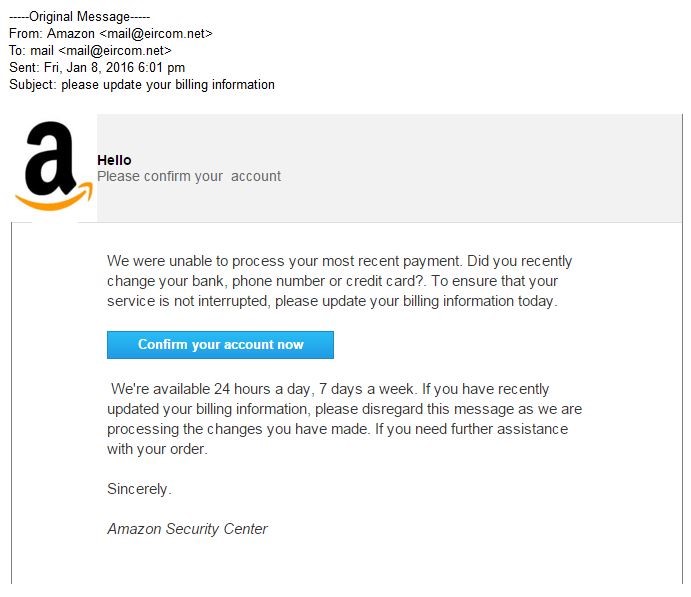On Halloween, children often dress in outfits they wouldn’t normally wear to request delicious treats from strangers. Scammers often do the same using familiar disguises, but the treats they’re after are the dollars in your bank account.
In the email scam above, a thief is attempting to fool recipients into clicking on a button to update account information. Scammers often disguise themselves as well-known companies, such as Amazon.com in this example, since a target is more likely to have an account there than a more specialized or little-known website.
Pay careful attention to the email address of the sender. Though this scammer lists Amazon as the name of the sender, the actual email address indicates that it’s from a source other than Amazon ([email protected]). It also omits the recipient’s name. The scammer doesn’t know who owns the target email account, but by using generic information, it has a chance of igniting concern in the recipient.
If you receive an email such as this one, don’t click on any link it contains. Clicking on the link will direct the clicker to an Amazon.com spoof website (designed to look like the actual website) that records any scrap of information the person types into the system. That information will then be used by the scammer to rip off unsuspecting clickers, steal their identities, and generally cause as much financial devastation as possible to the victim to monetarily benefit the thief.
“But what if the email is real? Shouldn’t I click on the link to see if it’s genuine?”
The short answer is no. Even if you have no intention of entering your personal information into the potentially fake website, simply clicking on the link could open your computer to attack by malware that might be installed on your computer.
Not every scam email will attempt to fool you into entering your personal information. Some such emails will rip the information right out of your system, and may not even give you an indication that it’s doing so.
Don’t risk opening your computer or bank accounts to attack. Never click on links included in an email message. It will help prevent criminals from getting the keys to your financial kingdom.
